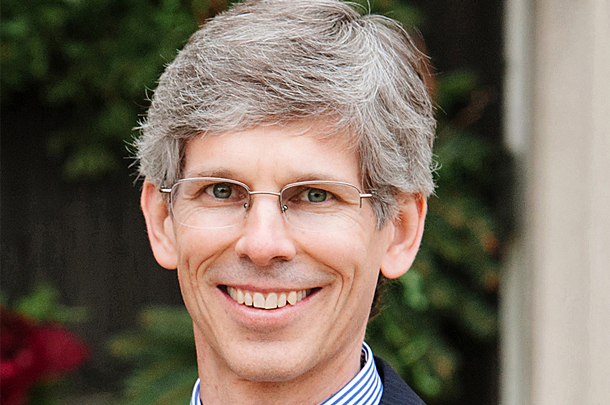A pioneering physician has joined Keck Medicine of USC as chief of the Division of Nephrology and director of the USC/UKRO Kidney Research Center.
Kenneth R. Hallows, MD, PhD, is an internationally recognized expert in ion transport physiology and in transport-metabolism coupling via the metabolic sensor AMP-activated protein kinase, an enzyme that plays a role in cellular energy homeostasis.
His clinical interests include electrolyte disorders, acute kidney injury and polycystic kidney disease.
“We are delighted that Ken has agreed to join USC,” said Edward Crandall, MD, chair of the Department of Medicine. “He is an excellent scientist with outstanding credentials, and we expect he will lead the division and the Kidney Research Center to world-class status.”
Hallows graduated with a degree in biophysics in 1987 from Brown University. He was then recruited to the MD-PhD program at the University of Rochester School of Medicine in New York, earning his PhD in biophysics in 1993 and his MD in 1995.
UKRO, which stands for University Kidney Research Organization, is a Los Angeles-based nonprofit charity supporting medical research and education related to the causes, treatment and eradication of all forms of kidney disease. The organization has pledged an initial $3.5 million to make this cutting-edge center a reality.
Vito M. Campese, MD, professor of medicine at the Keck School of Medicine of USC and chair of UKRO’s Medical Scientific Advisory Board — which is instrumental in the planning of the kidney center — serves as co-director.
“UKRO is delighted to welcome Dr. Hallows to USC’s group of nationally known researchers into various aspects of the kidney,” said UKRO President Kenneth Kleinberg. “We are counting on his leadership to place the USC/UKRO Kidney Research Center at the forefront of renal research worldwide.”
Hallows’ goal as director will be to establish a research team that interacts well with the strengths of the university, fostering collaborations with experts with complementary skills and promoting research by faculty members in a challenging funding climate. He will seek out talented recruits with an eye toward synergy and will promote translational projects that bridge basic science and clinical research.
Hallows plans to broaden his own experimental repertoire toward in vivo and human studies that utilize conditional and tissue-specific transgenic mouse models and clinical patient-centered studies in kidney disease.
“I envision that the Division of Nephrology will become a center of excellence in basic and translational kidney research with clinical initiatives that have a direct positive impact on patients with kidney disease in Los Angeles and nationwide,” Hallows said.
Hallows’ recruitment is expected to increase visibility of the division nationally through increased research and publications in national journals, as well as an expansion of faculty leadership and committee participation in national organizations.
— By Douglas Morino


